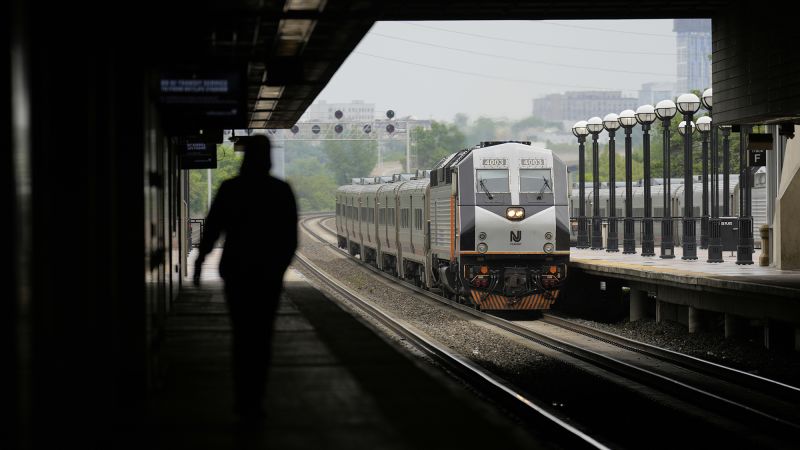CNN
—
Engineers at New Jersey Transit are poised to go on strike one minute after midnight Friday morning, a stoppage that would create huge problems for 100,000 daily train commuters, businesses across the New York metropolitan area as well as fans of Shakira and Beyoncé, who will have trouble getting to concerts the two stars have planned in upcoming shows.
The railroad and its engineers appear far apart from reaching an 11th hour deal that would avert the strike after 87% of rank-and file members of the International Brotherhood of Engineers and Trainmen voted against a previous tentative deal that would have given them their first raise since 2019.
Railroad officials are urging the commuters who ride its trains daily to make other plans and to work from home, if possible. The majority of commuters on the nation’s third-largest commuter railroad use New Jersey Transit to get to their jobs in New York City.
Besides the congestion that will likely clog the bridges and tunnels that span the Hudson River, many commuters to the city would be hit with up to a $9 “congestion pricing” toll, in addition to bridge and tunnel tolls that can cost more than twice that amount.
Terms of the rejected deal were not disclosed, but the union had gone into the negotiations seeking raises of 18% to 23% for its 500 members. The union says its members are paid about about 20% less than their counterparts at Amtrak, and three other commuter railroads in the region.
“We, the locomotive engineers of NJ Transit are asking only for a fair and competitive wage,” said Thomas Haas, the general chairman of the union’s unit representing the nearly 500 engineers at the railroad, in remarks Wednesday night before the meeting of NJ Transit’s board. “We are now almost out of time to solve this problem before a work stoppage takes place. The last thing we want to see is that (service) to be interrupted. But we’re at the end of our rope.”
After the meeting, NJ Transit CEO Kris Kolluri told reporters that he’s still confident a strike can be avoided.
“We reached a deal once before. It unfortunately got voted down. But we have 29 hours left before a strike would start,” he said.
Kolluri also pointed out that the agency recently reached a deal with its bus drivers. He said the two sides would be at the table Thursday, trying to reach a new deal.
“What I can represent to you is that the conversations have been constructive,” he said. “We’re all trying to work towards the same objective.”
But he said a deal would need to be one that is “fiscally responsible.”

Beyond the commuters who use the trains to get to and from jobs, mostly in New York City, the strike could cause huge problems for fans of Shakira, who is set to perform at MetLife Stadium Thursday and Friday night, less than 10 miles from the Lincoln Tunnel that links New Jersey and Manhattan, and for fans of Beyoncé, who is due to perform there for a series of five shows starting next Thursday.
NJ Transit has already canceled service to Thursday’s Shakira show. Concertgoers who drive to the Shakira or the Beyoncé shows could find themselves stuck in worse-than-normal traffic as other regular train passengers are forced onto the road.
Railroads operate under an arcane century-old federal law, the Railway Labor Act, that controls labor relations at railroads and airlines, greatly limiting the union’s ability to go on strike. Even when members of a union reject a contract, as has happened in this case, they can be ordered to stay on the job and accept the terms of the deal through an act of Congress.
That’s what happened in December of 2022, when Congress voted in favor of a deal rejected by the majority of the more than 100,000 union members who work at the nation’s four major freight railroads.
But it’s not clear that Congress will feel as compelled to act in the case of a single commuter railroad as it was in the case of the freight railroads. While Congress has not stood by and allowed the nation’s freight railroads to have a strike longer than a few hours, there have been numerous examples of commuter rail strikes that have stretched on for weeks, even months without Congressional action to end it.
Back in 1983, New Jersey Transit was on strike for one month. Also in the 1980s, the Southeastern Pennsylvania Transit Authority (SEPTA) was on strike for 108 days, Metro North, which is the commuter line serving the suburbs north of New York, was on strike for 42 days, and an 11-day work stoppage occurred on the Long Island Railroad.

